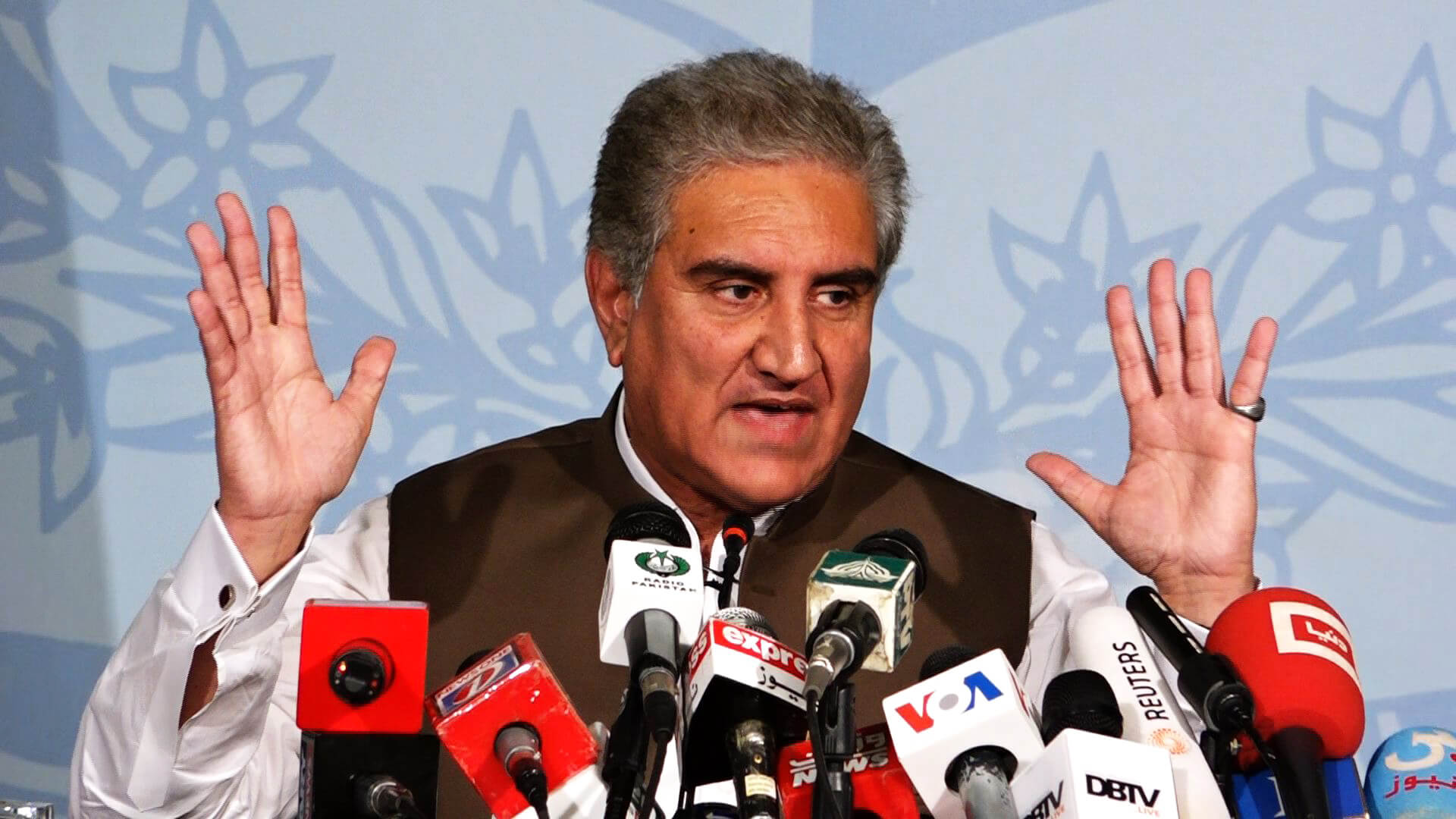Pakistani Foreign Minister (FM) Shah Mahmood Qureshi met the presidents of Tajikistan and Uzbekistan in their countries on Wednesday to discuss bilateral ties and the ongoing Afghan crisis. Qureshi’s visits are part of his wider tour of the region, and he is expected to visit Turkmenistan and Iran in the coming days.
FM @SMQureshiPTI, during his 2-day visit of Central & West Asia, arrived in 🇹🇯 & met FM #SirojiddinMuhriddin & called on President #EmomaliRahmon. He then departed for 🇺🇿, where he met FM #AbdulazizKamilov & called on President #ShavkatMirziyoyev
— Spokesperson 🇵🇰 MoFA (@ForeignOfficePk) August 25, 2021
⬇️ Recap of Day 1 - 25 Aug 2021: pic.twitter.com/iczVNhigcc
During his meeting with Tajik President Emomali Rahmon, Qureshi noted with great concern the developments in Afghanistan. The FM highlighted that both countries would “benefit immensely from a peaceful and stable Afghanistan in terms of enhanced economic cooperation and connectivity.” In this regard, Qureshi underscored the importance of a “coordinated approach to realise shared objectives of a connected region.”
The Tajik President welcomed Qureshi’s call for a coordinated approach to ensuring peace in Afghanistan. The President added that he is looking forward to welcoming Pakistani Prime Minister Imran Khan at the Shanghai Cooperation Organization Summit in Dushanbe to discuss the situation. “Today, one of the major threats to the regional security is the current situation in Afghanistan, which is on the brink of a humanitarian catastrophe as a result of the withdrawal of coalition forces,” Rahmon noted.
He said the Taliban are “breaking their previous promises to form an interim government with the broad participation of other political forces” and urged them to avoid “all forms of lawlessness, murder, looting, and persecution of Afghans, Tajiks, Uzbeks, and other national minorities.”
Apart from calling on the international community to take urgent measures to ensure peace in Afghanistan, Rahmon mentioned that Tajikistan has “conveyed constructive proposals to the Pakistani side for ensuring peace, stability, and further sustainable development in the neighbouring country.”
Meanwhile, Qureshi separately met with Tajik FM Sirojiddin Muhriddin in Dushanbe, where they discussed “matters of mutual interest” and reiterated their support for an “inclusive political solution in Afghanistan.”
Following his meeting with Tajik officials, Qureshi visited Uzbekistan on the same day and held talks with Uzbek President Shavkat Mirziyoyev. The FM hoped that the Afghan leaders would work out a peaceful solution to the crisis, “which would lead to a stronger trade and economic ties and strengthen economic linkages between people in the region.”
Mirziyoyev concurred with Qureshi on strengthening linkages in the region. In this regard, he said that “Uzbekistan was keen to develop ties with Pakistan in all areas, particularly in transport and connectivity.”
Qureshi also met with his Uzbek counterpart Abdulaziz Kamilov and exchanged views to “intensify bilateral relations” in all areas. The duo underscored the importance of coordinating closely on the situation in Afghanistan.
Since the withdrawal of American troops from Afghanistan, Central Asian countries have expressed concerns about the violence spilling over into their borders. Central Asian states, including Tajikistan, Turkmenistan, and Uzbekistan, have sought international support to deal with the Afghan crisis and have beefed up security. Recently, troops from Tajikistan, Turkmenistan, Uzbekistan, and Russia held massive military exercises near the Tajik-Uzbek border to bolster their defences.
On the other hand, Pakistan is believed to have extensive contacts with the Taliban and its leadership. Therefore, Qureshi’s Central Asia tour can be seen as a concerted Pakistani effort to influence neighbouring countries into joining its push for an inclusive government in Kabul to ensure that the region remains stable.

